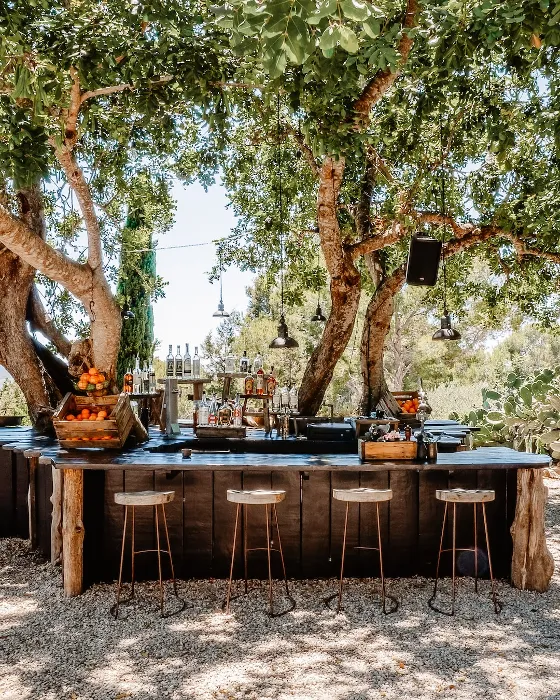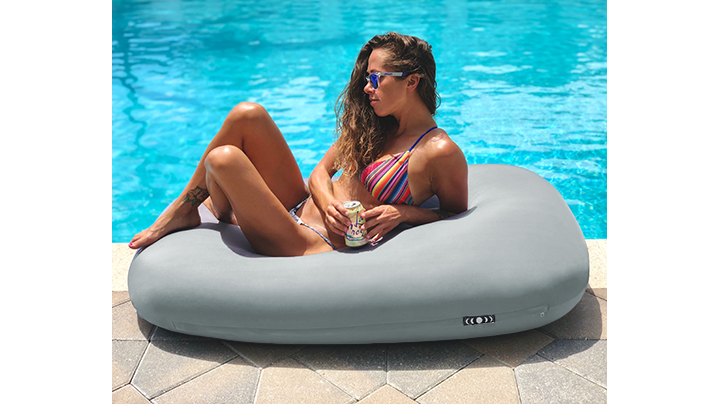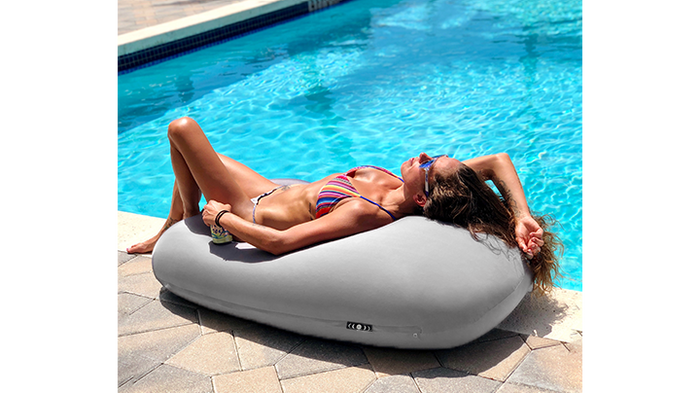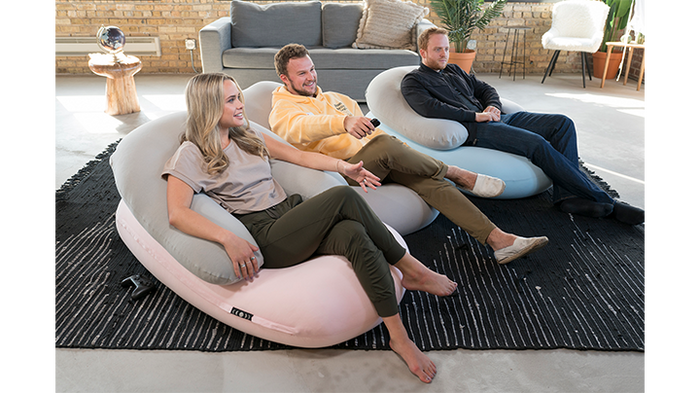67 TIPS BEST Wood For Outdoor Bars (Facts)

-
What is the Best Wood for Outdoor Bars?
-
Hardwood vs. Softwood
-
Cedar
-
Teak
-
Ipe
-
Redwood
-
Pressure-Treated Pine
-
Other Considerations
- Moisture Resistance
- UV Resistance
- Maintenance Requirements
- Sustainability
-
Other Materials for Outdoor Bars
- Aluminum
- Wicker/Rattan
- Concrete
- Stainless Steel
-
Tips for Maintaining Your Outdoor Bar
- Regular Cleaning
- Sealing/Staining
- Covering
- Inspecting
- Storage
-
FAQs (requently Asked Questions)
-
Related Posts:
- 265 Backyard Shed Bar Names (With Meaning)
- 77 BEST Tips Backyard Bar and Grill Ideas (Helpful)
- 69 Tips BEST Backyard Bar Speaker Systems (Selected)
-
Please note
-
Conclusion
Disclosure: Some of the links in this article may be affiliate links, which can provide compensation to me at no cost to you if you decide to purchase. This site is not intended to provide financial advice and is for entertainment only.
What is the Best Wood for Outdoor Bars?
When it comes to setting up an outdoor bar, choosing the right type of wood is crucial.
Not only should it be durable enough to withstand the elements, but it should also be visually appealing and able to complement the overall aesthetic of your outdoor space.
In this article, we’ll explore the different types of wood that are commonly used for outdoor bars, and the pros and cons of each.
Hardwood vs. Softwood
Before diving into specific types of wood, it’s important to understand the difference between hardwood and softwood.
Hardwood comes from deciduous trees, such as oak or maple, while softwood comes from evergreen trees, such as pine or spruce.
Hardwood is generally denser and more durable, making it a popular choice for outdoor furniture.
However, softwood can also be durable when treated properly, and it tends to be less expensive than hardwood.
Get this IDEAL Moon Pod super-fast!
Get more info about this Excellent Moon Pod!
Cedar
Cedar is a popular choice for outdoor furniture and bars because of its natural resistance to decay and rot. It has a beautiful reddish-brown color and a pleasant aroma, making it a visually appealing option.
Cedar is also lightweight and easy to work with, making it a popular choice for DIY projects.
However, cedar is a softwood, so it may not be as durable as hardwoods like teak or ipe.
Teak
Teak is one of the most durable and long-lasting woods available, making it a popular choice for outdoor furniture and bars.
It is naturally resistant to weathering, insects, and rot, and can last for decades with proper care.
Teak also has a beautiful golden-brown color and a smooth, even grain. However, teak can be quite expensive, and its popularity has led to issues with illegal logging in some parts of the world.
Get this IDEAL Moon Pod super-fast!
Get more info about this Excellent Moon Pod!
Ipe
Ipe is another hardwood that is often used for outdoor bars and furniture. It is extremely dense and durable, and can last for up to 50 years with proper care.
Ipe has a dark brown color and a distinctive grain pattern that many people find attractive.
However, ipe is also quite expensive and can be difficult to work with due to its hardness.
>> Make sure your next outdoor bash is a hit by reading up on our Know-How Bank guide to 5279 BEST Tips on Backyard Bar - it's full of great insights that will have your guests raving about your hosting skills!
Get the essential knowledge you need to turn any gathering into an unforgettable experience today. >>
Get this IDEAL Moon Pod super-fast!
Get more info about this Excellent Moon Pod!
Redwood
Redwood is a popular choice for outdoor furniture and bars because of its natural resistance to decay and insects. It has a beautiful reddish color and a straight, even grain.
However, redwood is a softwood, so it may not be as durable as hardwoods like teak or ipe. It also tends to be more expensive than other softwoods like cedar or pine.
Pressure-Treated Pine
Pressure-treated pine is a common choice for outdoor furniture and bars because it is affordable and widely available.
The wood is treated with chemicals to make it more resistant to decay, insects, and weathering.
However, pressure-treated pine may not be as visually appealing as other types of wood, and some people are concerned about the potential health risks associated with the chemicals used in the treatment process.
Get other OUTSTANDING products from Moon Pod Miracles Company!
Get SPECIAL offers. Get special DISCOUNTS!
Other Considerations
In addition to the type of wood used, there are a few other important factors to consider when choosing an outdoor bar material. These include:
Moisture Resistance
Since outdoor bars are exposed to the elements, it is crucial to choose a wood that can resist moisture.
Moisture can cause wood to swell and warp, leading to structural damage and an unsightly appearance.
Hardwoods like teak and ipe tend to be naturally resistant to moisture, while softwoods like cedar and redwood may require additional treatment to maintain their moisture resistance.
UV Resistance
In addition to moisture, outdoor bars are also exposed to UV radiation from the sun. UV radiation can cause wood to fade and lose its color over time.
Some types of wood, like teak and ipe, naturally contain oils that provide UV protection.
Others may require additional treatment to maintain their color and finish.
Maintenance Requirements
Different types of wood require different levels of maintenance to keep them looking their best.
Hardwoods like teak and ipe typically require very little maintenance, as they are naturally resistant to decay and insects.
Softwoods like cedar and redwood may require regular sealing or staining to maintain their appearance and protect against moisture and UV radiation.
Sustainability
Finally, it is important to consider the sustainability of the wood you choose for your outdoor bar.
Some types of wood, like teak and ipe, are harvested in unsustainable ways that can harm the environment and local communities.
Look for wood that is certified by organizations like the Forest Stewardship Council (FSC) or the Sustainable Forestry Initiative (SFI) to ensure that it was harvested responsibly.
Get other OUTSTANDING products from Moon Pod Miracles Company!
Get SPECIAL offers. Get special DISCOUNTS!
Other Materials for Outdoor Bars
While wood is a popular choice for outdoor bars, there are also other materials that can be used. Here are a few examples:
Aluminum
Aluminum is a lightweight and durable material that is commonly used for outdoor furniture and bars. It is naturally resistant to weathering and corrosion, making it a good choice for areas with high humidity or saltwater exposure.
Aluminum can also be painted or powder-coated in a variety of colors and finishes to match your outdoor decor.
Wicker/Rattan
Wicker and rattan are natural materials that are often used for outdoor furniture and bars. They have a classic and timeless appearance that can complement a variety of decor styles.
Wicker and rattan are lightweight and easy to move, making them a good choice for outdoor spaces that need to be rearranged frequently.
However, they may not be as durable as other materials and may require regular maintenance to prevent damage from moisture and UV radiation.
Concrete
Concrete is a durable and versatile material that can be used to create a variety of outdoor structures, including bars.
It can be molded into different shapes and sizes, and can be customized with a variety of finishes, such as staining, painting, or stenciling.
Concrete is also fire-resistant and naturally weather-resistant, making it a good choice for outdoor spaces that experience extreme temperatures or high winds.
Stainless Steel
Stainless steel is a durable and rust-resistant material that is often used for outdoor bars and appliances. It has a sleek and modern appearance that can enhance the look of an outdoor space.
Stainless steel is also easy to clean and maintain, and can be paired with a variety of countertop materials, such as granite or concrete.
Tips for Maintaining Your Outdoor Bar
No matter what material your outdoor bar is made from, it is important to properly maintain it to ensure its longevity and enjoyment. Here are a few tips for maintaining your outdoor bar:
Regular Cleaning
Regular cleaning is crucial for preventing dirt and grime buildup that can damage the surface of your outdoor bar. Use a mild soap and water solution to clean the surface, and avoid using harsh chemicals or abrasive scrubbers that can scratch or damage the material.
Sealing/Staining
Wooden outdoor bars may require regular sealing or staining to protect against moisture and UV radiation. Follow the manufacturer's instructions for the specific type of wood you have, and make sure to apply the sealer or stain evenly to prevent blotches or streaks.
Covering
Covering your outdoor bar when not in use can help protect it from the elements and prolong its lifespan. Use a waterproof cover that fits snugly over the bar, and secure it with straps or bungee cords to prevent wind damage.
Inspecting
Regularly inspect your outdoor bar for signs of damage or wear, such as cracks, splits, or warping. Address any issues promptly to prevent further damage and ensure the safety of yourself and your guests.
Storage
If you live in an area with harsh winters or extreme weather conditions, consider storing your outdoor bar indoors during the offseason. Make sure to clean and dry the bar thoroughly before storage to prevent mold and mildew growth.
FAQs (requently Asked Questions)
Here are some common questions and answers about choosing the best wood for outdoor bars:
Q: What is the most durable type of wood for outdoor bars?
A: Hardwoods like teak and ipe tend to be the most durable and long-lasting options.
Q: Is cedar a good choice for outdoor bars?
A: Yes, cedar is a popular choice for outdoor furniture and bars because of its natural resistance to decay and rot.
Q: What is the difference between hardwood and softwood?
A: Hardwood comes from deciduous trees, such as oak or maple, while softwood comes from evergreen trees, such as pine or spruce. Hardwood is generally denser and more durable.
Q: Is pressure-treated pine a good choice for outdoor bars?
A: Pressure-treated pine can be a good choice for outdoor bars because it is affordable and widely available. However, some people are concerned about the potential health risks associated with the chemicals used in the treatment process.
Q: How can I make my outdoor bar last longer?
A: Proper maintenance and protection are key to ensuring the longevity of your outdoor bar. This includes regular cleaning, sealing or staining, covering when not in use, and addressing any damage promptly.
Q: What is the most affordable type of wood for outdoor bars?
A: Softwoods like cedar and redwood tend to be more affordable than hardwoods like teak or ipe.
Q: Can wicker or rattan be used for outdoor bars?
A: Yes, wicker and rattan are natural materials that are often used for outdoor furniture and bars. However, they may not be as durable as other materials and may require regular maintenance.
Q: How can I protect my outdoor bar from moisture?
A: Choose a wood that is naturally resistant to moisture, such as teak or ipe, or consider treating the wood with a moisture-resistant sealer or stain.
Q: Is redwood a good choice for outdoor bars?
A: Yes, redwood is a popular choice for outdoor furniture and bars because of its natural resistance to decay and insects.
Q: What is the best way to clean my outdoor bar?
A: Use a mild soap and water solution to clean the surface of your outdoor bar, and avoid using harsh chemicals or abrasive scrubbers that can scratch or damage the material.
Q: Can I paint or stain my outdoor bar?
A: Yes, many types of wood can be painted or stained to match your outdoor decor. Follow the manufacturer's instructions for the specific type of wood you have.
Q: How can I protect my outdoor bar from UV radiation?
A: Choose a wood that is naturally resistant to UV radiation, such as teak or ipe, or consider treating the wood with a UV-resistant sealer or stain.
Q: Is concrete a good material for outdoor bars?
A: Yes, concrete is a durable and versatile material that can be used to create a variety of outdoor structures, including bars.
Q: How often should I seal or stain my outdoor bar?
A: This will depend on the specific type of wood and the climate in your area. Follow the manufacturer's instructions and monitor the appearance of the wood to determine when reapplication is necessary.
Q: Can stainless steel be used for outdoor bars?
A: Yes, stainless steel is a durable and rust-resistant material that is often used for outdoor bars and appliances.
>> Finding the right material for your outdoor bar top can be tricky, but these 67 tips on what to look for will make it a breeze!
We cover everything from budget-friendly materials like concrete and vinyl, to higher-end options like stone or tile.
Plus, you'll learn how proper installation and maintenance can keep your bar top looking great for years to come. >>
Q: What is the lifespan of an outdoor bar?
A: The lifespan of an outdoor bar will depend on the specific type of wood and the level of care and maintenance it receives. With proper care, an outdoor bar can last for many years.
Q: Is ipe difficult to work with?
A: Yes, ipe can be quite hard and difficult to work with, which may increase the cost of construction.
Q: What is the most visually appealing type of wood for outdoor bars?
A: This will depend on personal preference, but many people find the dark brown color and distinctive grain pattern of ipe to be attractive.
Q: Can aluminum be used for outdoor bars?
A: Yes, aluminum is a lightweight and durable material that is commonly used for outdoor furniture and bars.
>> If you're looking for the best tips on what should backyard bars have, then look no further than this post.
Here you'll find 103 of the top recommendations to help make your backyard bar complete. From essential supplies and furniture to creative decor ideas and food presentation tips, you won't be disappointed with these great ideas.
Whether you're just starting out or you're an experienced backyard bartender, these tips are sure to give your outdoor space the perfect atmosphere. >>
Q: Will pressure-treated pine warp or split over time?
A: Pressure-treated pine may be prone to warping or splitting over time if not properly maintained. Regular cleaning and sealing/staining can help prevent these issues.
Q: Is teak harvested sustainably?
A: Teak is often harvested unsustainably, so it is important to look for wood that is certified by organizations like the Forest Stewardship Council (FSC) or the Sustainable Forestry Initiative (SFI).
Q: How can I protect my outdoor bar from insects?
A: Choose a wood that is naturally resistant to insects, such as teak or ipe, or consider treating the wood with an insect-resistant sealer or stain.
Q: How often should I inspect my outdoor bar?
A: To ensure your outdoor bar is safe and structurally sound, you should inspect it regularly for any signs of damage or wear. Additionally, if you notice any cracks, discoloration, warping, or other signs of deterioration, take steps to address the issue promptly.
Q: Can I use my outdoor bar year-round?
A: Yes, many types of wood are suitable for use in outdoor bars all year round. However, you should take steps to protect your bar when not in use by covering it with a tarp or another waterproof cover. Additionally, regular cleaning and sealing/staining can help ensure your bar remains safe and attractive throughout the year.
Related Posts:
265 Backyard Shed Bar Names (With Meaning)
77 BEST Tips Backyard Bar and Grill Ideas (Helpful)
69 Tips BEST Backyard Bar Speaker Systems (Selected)
Please note
This https://kewmedia.com/ website (the “Blog”) is published and provided for informational and entertainment purposes only.
The information in the Blog constitutes the content creator’s own opinions (and any guest bloggers posting from time to time) and it should not be regarded as a description of any services provided by any company.
When it comes to matters of health, always consult with a trained medical professional – never rely solely on digital information. Taking into account your individual situation will help you make the best decisions for your own wellbeing.
The Blog serves as an informative resource, but should never be used to diagnose or treat a medical condition. When it comes to your health, always consult with a qualified doctor for the best advice and care tailored specifically for you!
The Blog and the materials and information it contains are not intended to, and do not constitute, medical or other health advice or diagnosis and should not be used as such. You should always consult with a qualified physician or health professional about your specific circumstances.
Also the opinions expressed in the Blog are for general informational purposes only and are not intended to provide specific advice or recommendations for any individual or on any specific security or investment product or loan, loans, credit, insurance or any other financial product or transaction. It is only intended to provide education about the financial industry. The views reflected in the commentary are subject to change at any time without notice.
Nothing on this Blog constitutes investment advice, performance data or any recommendation that any security, portfolio of securities, investment product, transaction or investment strategy, loan, loans, credit, insurance or any other financial instrument or transaction is suitable for any specific person.
From reading this Blog we cannot assess anything about your personal circumstances, your finances, or your goals and objectives, all of which are unique to you, so any opinions or information contained on this Blog are just that – an opinion or information.
You should not use this Blog to make financial decisions and we highly recommend you seek professional advice from someone who is authorized to provide investment advice.
Any indices referenced for comparison are unmanaged and cannot be invested into directly. Investments in securities involve the risk of loss. Past performance is no guarantee of future results.
This Blog contains links to other websites (which may include message boards or forums). We are not responsible for the privacy practices or the content of such sites. Please understand that any information that is disclosed in these areas becomes public information. We have no control over its use and you should exercise caution when deciding to disclose your personal information.
Conclusion
Choosing the right type of wood for your outdoor bar depends on a variety of factors, including your budget, aesthetic preferences, and the climate in your area. Hardwoods like teak and ipe tend to be more durable and long-lasting, but they also come with a higher price tag. Softwoods like cedar and redwood can be visually appealing and affordable, but may not be as durable. Whichever type of wood you choose, be sure to properly maintain and protect your outdoor bar to ensure its longevity.
When choosing the best wood for your outdoor bar, there are many factors to consider, including durability, moisture resistance, UV resistance, maintenance requirements, and sustainability. Hardwoods like teak and ipe tend to be the most durable and long-lasting options, while softwoods like cedar and redwood can be more affordable and visually appealing. Regardless of what type of wood you choose, be sure to properly maintain and protect your outdoor bar to ensure its longevity. With proper care, a well-designed and constructed outdoor bar can provide years of enjoyment for you and your guests.
-
What is the Best Wood for Outdoor Bars?
-
Hardwood vs. Softwood
-
Cedar
-
Teak
-
Ipe
-
Redwood
-
Pressure-Treated Pine
-
Other Considerations
- Moisture Resistance
- UV Resistance
- Maintenance Requirements
- Sustainability
-
Other Materials for Outdoor Bars
- Aluminum
- Wicker/Rattan
- Concrete
- Stainless Steel
-
Tips for Maintaining Your Outdoor Bar
- Regular Cleaning
- Sealing/Staining
- Covering
- Inspecting
- Storage
-
FAQs (requently Asked Questions)
-
Related Posts:
- 265 Backyard Shed Bar Names (With Meaning)
- 77 BEST Tips Backyard Bar and Grill Ideas (Helpful)
- 69 Tips BEST Backyard Bar Speaker Systems (Selected)
-
Please note
-
Conclusion
Disclosure: Some of the links in this article may be affiliate links, which can provide compensation to me at no cost to you if you decide to purchase. This site is not intended to provide financial advice and is for entertainment only.





